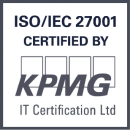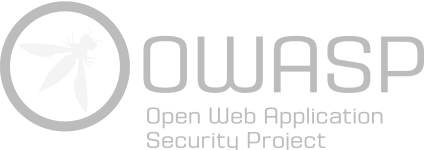See how Salv Bridge enables structured collaboration between banks
Learn moreAcross Europe, banks, fintechs and regulators are discovering that sharing intelligence safely and confidently makes the difference between reacting to crime and disrupting it.
The insight, repeated by speakers at Salv’s Bridge Community Event, was simple but profound: beating financial crime depends on trust, but trust alone isn’t enough. It must be engineered through structure, culture and habit.
The Baltics have shown what this looks like in practice. Estonia’s intelligence-sharing culture is now influencing thinking far beyond its borders. Latvia’s culture is taking shape through its closed KYC utility, which enables the dependable exchange of intelligence between financial institutions.
By 2027, the EU’s forthcoming Anti-Money Laundering Regulation, including Article 75 on cross-border information sharing, will be mandatory. Every EU financial institution will need a compliant and provable solution for cross-border intelligence exchange.
Trust must be engineered
Trust, said Salv CEO Taavi Tamkivi, has two sides: the formal and the human. The formal side requires careful compliance, including the audits, certifications and security standards that reassure partners their data will be safe. Salv’s early experience meeting ISO 27001 and national licensing requirements proved that technical rigour builds institutional confidence.
But the human side matters just as much. Tamkivi recalled how, before launching Salv Bridge, he met regulators, FIU leaders and data-protection officials face-to-face. “Just being in the same room changed the dynamic,” he said. “When people meet, they start trusting the process.”
That same principle underpins Europe’s most effective collaboration models. Trust isn’t left to chance, but cultivated through transparency, conversation and shared purpose.
Give lawyers the right mandate
Legal caution remains one of the biggest barriers to collaboration.
As Edgars Pastars, Partner at Cobalt and legal adviser to Finance Latvia, has noted, most institutions operate far below the threshold of what the law allows. His advice: change the question. Instead of asking is it mandatory, ask is it allowed?
The difference is cultural as much as legal. Edgars has argued that compliance leaders should bring lawyers in early and give them a mandate to find solutions rather than obstacles — a mindset that’s increasingly relevant across Europe as Article 75 takes shape.
Siiri Gräbbi, Sanctions and Counter-Terrorism Financing Officer at Coop Pank, summed it up simply: “Have lunch together before you draft the policy.”
Collaboration between lawyers and compliance teams is itself a form of risk control, because it ensures both sides understand not just the text of the law, but its intent.
The path to shared intelligence
Intelligence sharing works only when it’s disciplined. Estonian banks using Bridge agreed templates that define what questions can be asked, how they should be phrased, and on what legal grounds. Audit trails keep everything transparent; response times, often measured in hours, make the exchange practical.
This precision addresses the twin fears of GDPR and competition law. As Edgars explained, the solution isn’t to share less — it’s to share better. Standardised formats and documented purpose limit the risk of over-sharing while making cooperation faster.
The same logic applies when information moves beyond banking. In Estonia, multi-agency visibility has uncovered connections no single institution could see. In one case, information initially flagged as a possible terrorist threat revealed a network of narcotics transactions — an example of how collaboration broadens perspective as well as reach.
The next frontier
If domestic cooperation is hard, cross-border exchange is harder still. Criminals move instantly; legal frameworks don’t. Taavi described the importance of monitoring “super-nodes” — modern fintech and payment firms that span the continent, serve millions of customers in multiple jurisdictions, and process huge transaction volumes. Connecting with those, he said, requires one-to-one engagement rather than new treaties.
That kind of pragmatic cooperation, built on professional relationships rather than bureaucracy, is already yielding results. When Lithuanian banks joined regional networks, the ability to halt fraudulent flows improved almost immediately.
Article 75 of the forthcoming EU AML Regulation is expected to formalise such exchanges by harmonising legal grounds for sharing. As outlined in Salv’s intelligence-sharing guidance, the technology and the trust are already in place — regulation will follow where innovation leads.
Disrupting the business model
For Taavi and Siiri alike, the goal isn’t simply faster recalls or cleaner audits — it’s deterrence. “You don’t have to stop every transaction,” Taavi said. “If criminals’ profitability drops by thirty per cent, they move on.” Evidence from Estonia suggests that’s already happening.
That shift redefines compliance as a competitive advantage. Institutions that collaborate protect not only their customers but their reputations — and ultimately their markets. Legal certainty, data discipline and human trust are combining to form a new kind of infrastructure, one that turns cooperation from an aspiration into an everyday habit.
In fighting financial crime, the lesson from Europe’s most connected markets is clear: trust isn’t a soft skill, it’s a system. And building that system, piece by piece, may prove to be the region’s most powerful innovation yet.
Frequently asked questions
What is a financial crime collaboration model?
A financial crime collaboration model describes how institutions share intelligence securely and lawfully to prevent fraud and money laundering. It includes shared frameworks, legal clarity, and cross-border processes.
What is Article 75 of the EU AML Regulation?
Article 75 provides a legal basis for private-to-private intelligence sharing between financial institutions. It will become mandatory by 2027 and aims to harmonise cross-border AML collaboration across the EU.
Why is trust important in intelligence sharing?
Trust is essential for compliance teams to share sensitive information confidently. It must be engineered through clear governance, secure platforms, and human relationships, not assumed.
What makes intelligence sharing compliant with GDPR?
Using predefined templates, clear legal grounds, and full audit trails ensures intelligence sharing meets GDPR requirements without over-disclosing personal data.
What role do lawyers play in financial crime collaboration?
Lawyers help translate regulatory frameworks into operational practice. Involving them early (with a mandate to solve, not block) accelerates compliant intelligence sharing.



